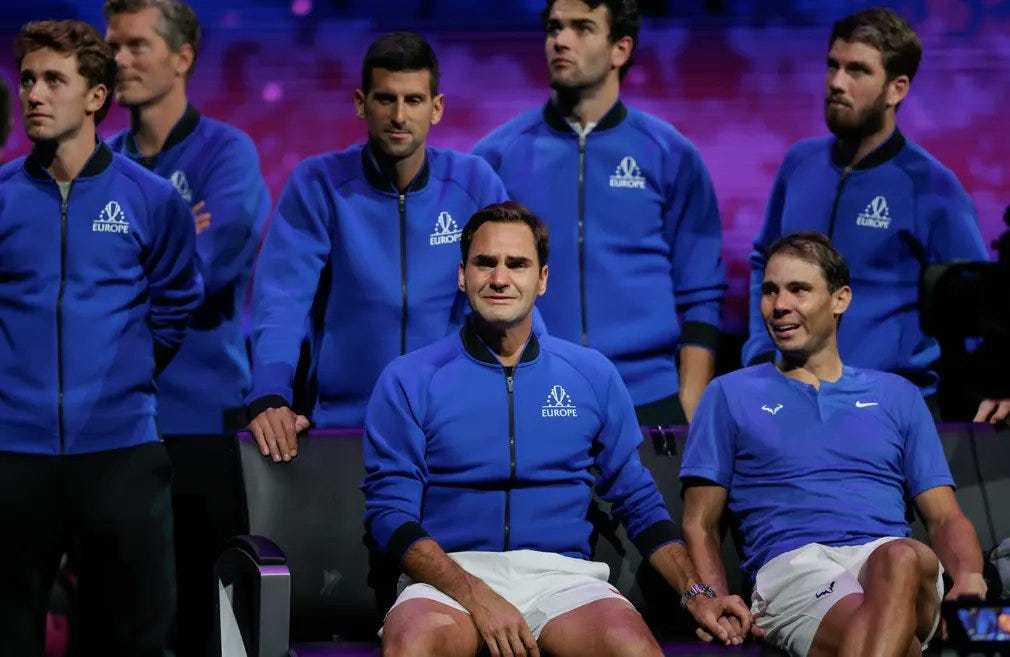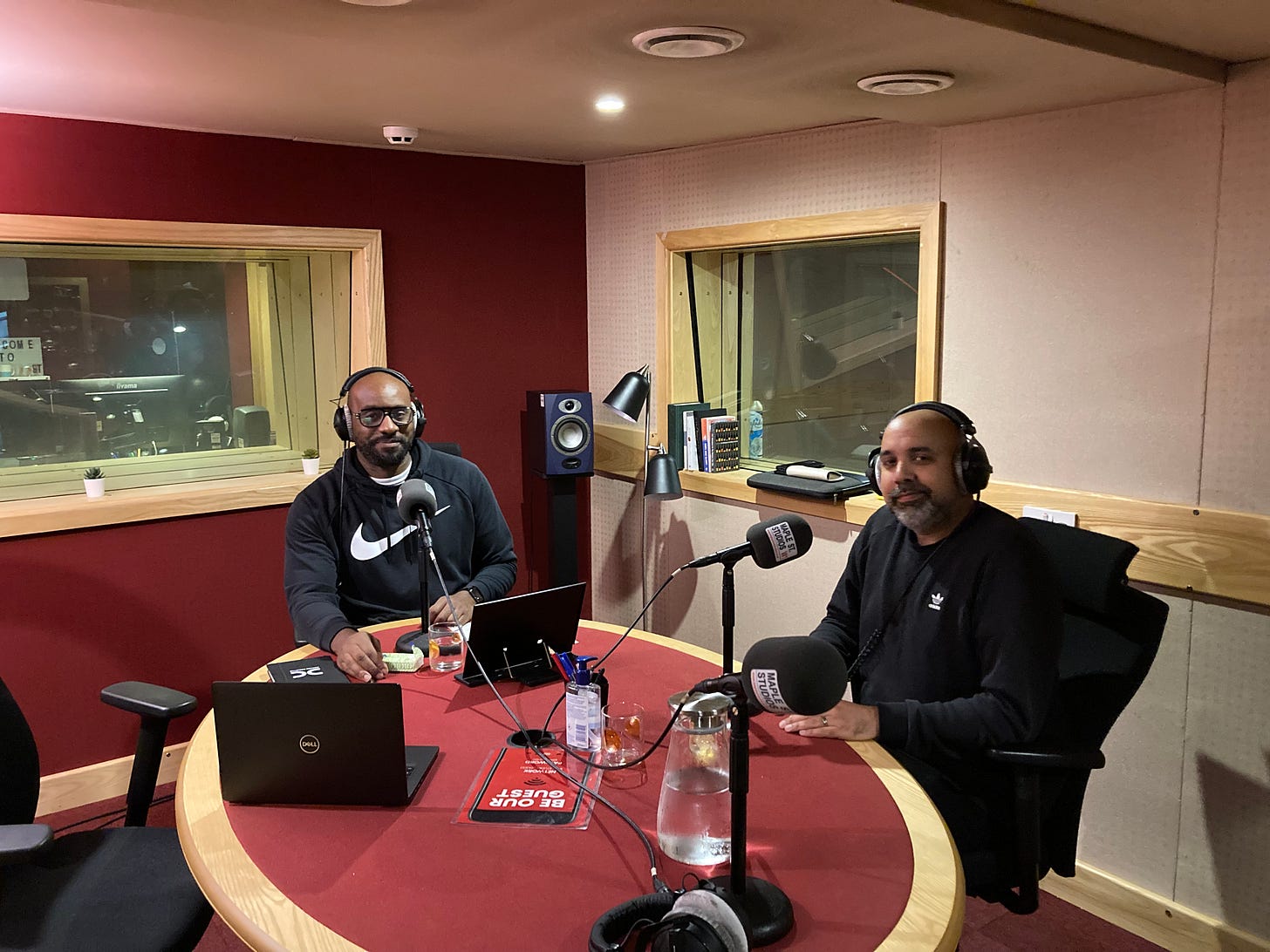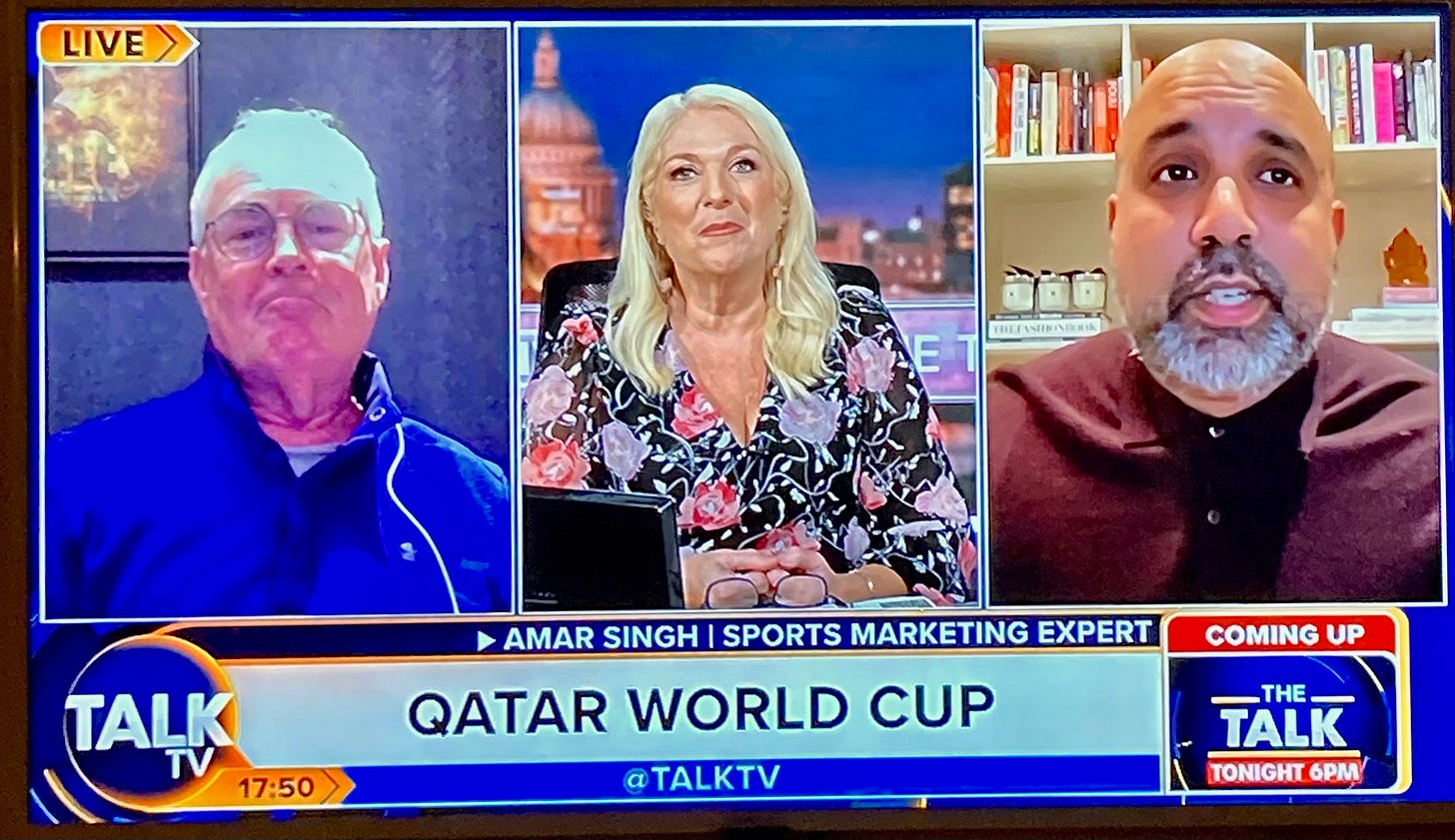World Cup 2022: Lionel Messi vs Cristiano Ronaldo and our primal obsession with rivalries
Why great sporting adversaries capture our imagination.
It was on the eve of the Fifa World Cup, almost certainly the last to feature Lionel Messi and Cristiano Ronaldo (although you can’t be 100% sure with these two enduring icons), that Louis Vuitton dropped their social bomb.
A photograph, taken by the legendary Annie Leibowitz, locked in battle over a game of chess played on top of the luxury brand’s chequered trophy trunk.
These two great rivals, together for the first time in a single campaign, ahead of a tournament which could answer once and for all who the GOAT is.


Unfortunately the behind-the-scenes video released by Louis Vuitton makes it quite obvious that each star was shot separately by Leibowitz on different days, denying us of some juicy awkward conversations on set.
Statistically, Messi and Ronaldo have been on another planet compared to other footballers of their generation in the last 15 years.
Both are in the twilight of their careers but hold records that might not be beaten in our lifetimes.
That’s how extraordinary they both are.
Ronaldo has the record for the most professional career goals (818), most international goals (117), is the all time Uefa Champions League goalscorer (141 goals) and, if he finds the back of the net in Qatar, he will be the first player to score in five different World Cup finals.
Messi, has the most Ballon d’Ors (7), most competitive goals in a calendar year (91 in 2012), most official goals for a single (672 for FC Barcelona) and is the only player to score 30+ club goals in 13 consecutive seasons (2008/09 - 2020/21).
These two have truly defined an era - and their greatness will live on for years.
But there is more to their rivalry that fascinates us, than simply what they deliver on the pitch.
It’s their contrasting qualities and characteristics.
Where Messi is softly-spoken and introverted, Ronaldo is brash and extroverted.
Where Ronaldo is the totemic, match-winning goalscorer demanding the spotlight, Messi is perceived as the more selfless, team player, happy to let others shine.
Of course this is not completely true all of the time - but this how they have been framed over the years by the entire circus of media and marketing orbiting these two exceptional careers.
In sports marketing, it is not always easy to unlock the rivalry narrative (combat sports are the notable exception).
There is too much to be lost and too little to be gained in calling out a rival.
How many times do we hear footballers or tennis players or cricketers speak about their adversaries, let alone sign up to campaigns which pit them together or acknowledge them?
That’s why this photograph feels so unique, shareable and likeable.
At the time of writing this, the image has close to 70m likes across the Instagram accounts of Ronaldo, Messi, Louis Vuitton and Leibowitz, putting it way ahead of the World Record Egg.
The 34.4m likes on Ronaldo’s account is his most liked post ever, showing that for many, the most compelling thing about the Portuguese icon, is this rivalry.
The likability of this post, is not just down to pre World Cup hype. It’s pointing out something, we as fans are obsessed with, but the two men have often shied away from.
They are battling each other for supremacy and Qatar 2022 will see the end of football’s great chess game.
Our love of rivalries is primal, and the concept of rivalry as a vehicle for storytelling goes back to humanity’s oldest known stories.
In the Epic of Gilgamesh, a work of Mesopotamian mythology dating back to 2100 BC, the tyrannical Gilgamesh is challenged by a rival Enkidu, before the two adversaries become friends.
Similarly, the Hindu epic Mahabharata, pits Arjuna against Karna - two valiant warriors borne from the same mother but with diametrically different personalities.
Humans have been speaking of rivals and rivalries since the days of stories being passed orally, around a fire.
This is why the rivalry trope is present in some of the most popular tales in the history of literature.
Macbeth and Macduff, Dracula and Van Helsing, George Wickham and Mr Darcy…
And more recent examples that come to my nerdish mind, repeat the trick:
Obi Wan-Kenobi and Darth Vader, Professor X and Magneto, Harry Potter and Draco Malfoy…
So when marketeers, drum up rivalries between sports people, they are plugging into a powerful, primal force.
The mental grooves in our minds have been forged over years of storytelling to savour the rivalry narrative.
Borg and McEnroe, Ali and Frazier, Bird and Johnson, Evert and Navratilova, Eubank and Benn, Keane and Vieira, Senna and Prost, Federer and Nadal…
Each needs the other to fully define themselves and their greatness.
This connects to another aspect of the rivalry trope that pops up in literature time and time again - that of the worthy opponent.
When the rivals clash regularly, over time they develop respect for their opponent's abilities.
Remember this tender moment between a retiring Roger Federer and his greatest adversary, Rafa Nadal, in September?
Perhaps Louis Vuitton’s chess game image is so compelling because it feels like we are one step closer to Ronaldo and Messi embracing each other, breaking down in tears in mutual admiration and finally acknowledging the role each had on pushing the other to new heights?
Ronaldo and Messi won’t be competing against each other for dominance on the football pitch for much longer.
Don’t compare them, just enjoy them. And above all, enjoy the rivalry.
Highlights from the pre World Cup week
I recorded a podcast on Monday… (apologies to Craig David)
That’s Dentsu Creative’s Chief Operating Officer, Ete Davies -the knowledgable host of the Conscious Thinking podcast - with myself in a top secret underground studio, attempting to navigate through the various moral conundrums surrounding Qatar 2022.
We talked about some of the burning issues around this tournament such as purpose washing, worker welfare and LGBTQ rights.
We were joined (remotely) by Lou Englefield of Pride Sports who offered some insight into just how much of a setback this World Cup is for those organisations in football who have been working so hard to challenge homophobia, biphobia and transphobia in the game.
It was an interesting discussion. The podcast will be live soon, so watch this space.
Considerations for Budweiser and FIFA, after Qatar’s late stadium booze ban.
I was asked by The Drum to share my perspective on the Qatar Supreme Committee’s eleventh hour U-turn on alcohol sales in stadia at the tournament, and the impact this would have on the partnership between FIFA and Budweiser.
I spent three years at Budweiser, so I know that there are plenty of hard working professionals there who would have been preparing for Qatar 2022, holding respectful discussions with the local authorities and FIFA and many compromises would have been met to ensure local customs and laws were respected.
So the late change, from a sponsorship point of view was unacceptable.
Roll on 2026, however, when I am sure Budweiser will certainly make the most of a tournament taking place in Canada, Mexico and the USA.
You can find my perspective - along with that of other industry experts here.
And finally…
There was a brief appearance on Vanessa Feltz live on Talk TV, discussing - you guessed it - Qatar 2022 controversies.
A big thank you to the 190 subscribers who have signed up for this newsletter.
I’m really enjoying taking a weekly look at sports marketing, content and culture stories and talking points that pique my interest.
You can also follow me on Twitter and LinkedIn.
If you would like to join subscribers, who include sports marketing professionals working at Premier League football clubs, sports governing bodies, marketing agencies and global brands, please hit subscribe and share with your friends and colleagues.




